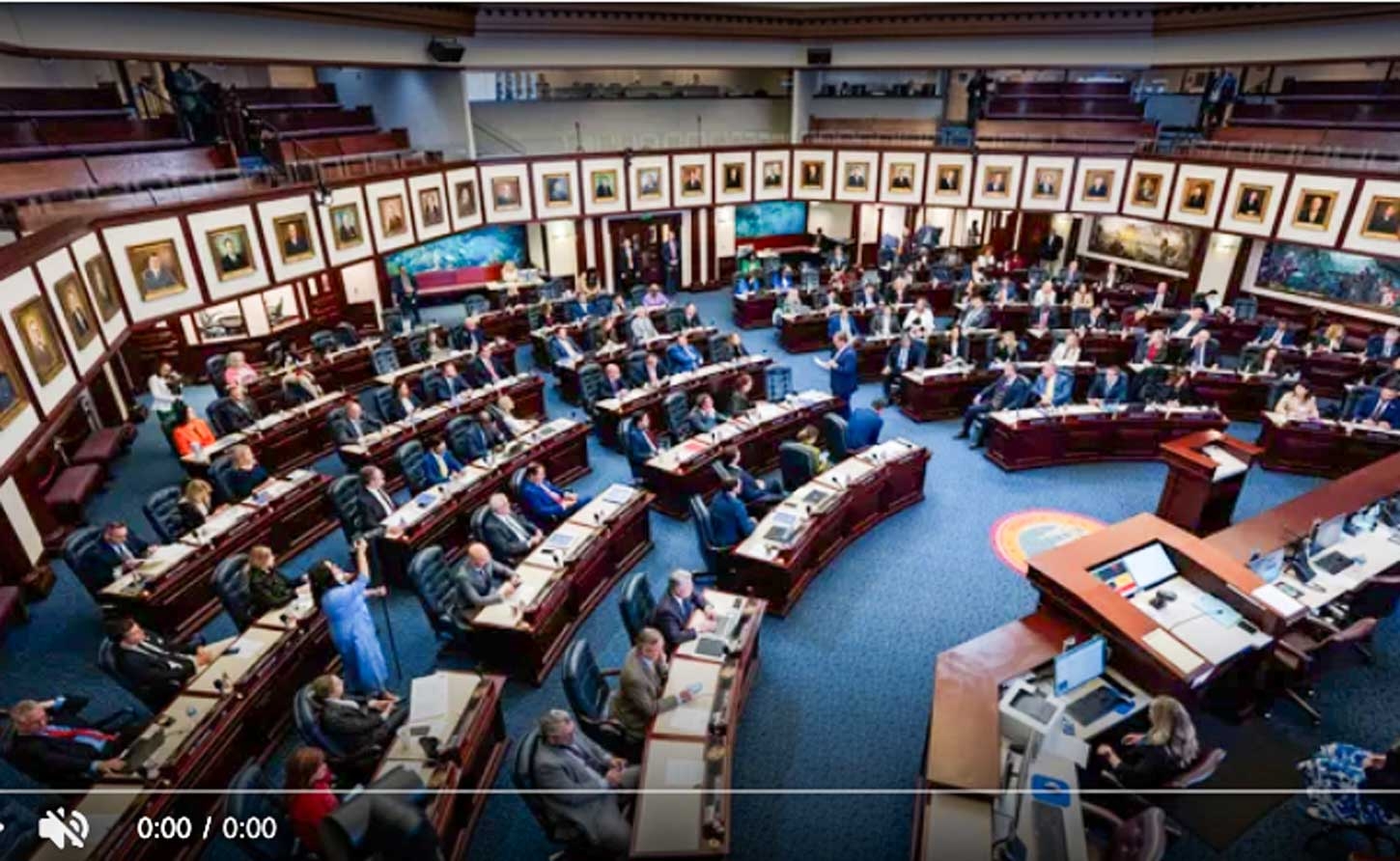FLORIDA | While Legislature Bankrolls Trump's Immigration Vision, DeSantis Remittance Threat Stalls

TALLAHASSEE, Fla. - January 29, 2025 - Florida lawmakers on Tuesday rejected Governor Ron DeSantis' most aggressive immigration proposals—including controversial restrictions that would have blocked undocumented immigrants from sending money to family members abroad and automatically designated them as flight risks in legal proceedings.
Instead, the Republican-dominated Legislature passed its own sweeping immigration package with a hefty $500 million price tag, setting up a showdown with the governor who promptly dismissed the measure as "weak" and "toothless."
The 80-plus page legislation—dubbed the Tackling and Reforming Unlawful Migration Policy, or TRUMP Act—was pushed through during a special session that limited public input, marking a rare break between Republican lawmakers and their governor on immigration policy.
The bill would reshape enforcement in a state where roughly one in five residents is an immigrant.
"The whole goal of this bill is to help President Trump do his job," declared Republican Sen. Gruters, who shepherded the measure after consulting with Trump himself. "He wants maximum coordination with local government."
The legislation's passage presents DeSantis with a political predicament: whether to sign a bill he's publicly derided as "watered-down" or risk appearing to obstruct Trump's immigration agenda.
The governor has been particularly critical of provisions empowering the state's agriculture commissioner as chief immigration officer, warning it was "almost like the fox guarding the hen house" given the agriculture industry's historically lax approach to immigration enforcement.
The bill's $500 million allocation includes $100 million in grants for local law enforcement training and detention facility leasing to U.S. Immigration and Customs Enforcement, plus $375 million for federal cooperation programs. An additional $25 million would provide $1,000 bonuses to local officers who collaborate with federal authorities.
In a controversial move that signals Florida's rightward shift on immigration, the legislation would also revoke a decade-old law allowing undocumented students to qualify for in-state college tuition—a provision that currently benefits about 6,500 students and was originally championed by the state's current Republican lieutenant governor.
The bill's mandate for government employees to "cooperate to the fullest extent possible" with federal immigration enforcement sparked heated debate. Democratic Rep. Christine Hunchofsky pressed for clearer definitions, warning that without them, school resource officers, social workers, and teachers would be left to interpret their obligations individually.
While Gruters maintained the bill primarily targets cooperation from jail and detention facility officials rather than "street-level" enforcement, he acknowledged these priorities could shift with federal directives.
The legislation's amendments enhance penalties for all crimes committed by undocumented individuals and mandate capital punishment for those convicted of capital offenses.
"I implore you today to remember the haunting yet challenging words of our lieutenant governor when she said, 'It's the right thing to do,'" Democratic Sen. Darryl Rouson reminded his colleagues, referencing the now-imperiled in-state tuition law.
Cuban-born Democratic Rep. Jose Alvarez struck a more pointed tone: "You all should be ashamed of yourself. This is not what this country was meant for."
In closing remarks that seemed to address the pressure from DeSantis and his allies, Speaker Perez offered a thinly veiled rebuke: "Threatening others to get your way isn't leadership, it's immaturity. I'm going ask you to ignore the melodrama and instead focus on the work that we have to do."
Florida's bold move comes as states across the political spectrum grapple with Trump's immigration agenda, with Tennessee among others launching special sessions to address the issue. As the Sunshine State charts this controversial course, the implications for its diverse population—and DeSantis's political future—hang in the balance.
-30-
